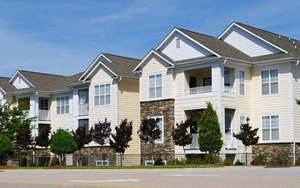SAN FRANCISCO -- Legal disputes stemming from local governments forcing developers to set aside land for affordable housing, or else pay fines, are expected to persist until the U.S. Supreme Court settles the matter.
In a decision handed down Sept. 23, the 2nd District Court of Appeals affirmed a trial court decision denying a developer’s challenge to fees totaling nearly $600,000.

In affirming, the court cited a California Supreme Court decision in California Building Industry Association (CBIA) v. the City of San Jose that upheld the city’s ordinance regarding land set aside for affordable housing. The court said it is a “use restriction," not an illegal taking under the Fifth Amendment.
The Fifth Amendment’s takings clause prohibits the government from taking private property for public use without just compensation.
“I think the court is correct in deciding the case based on CBIA v. San Jose, but that case is troubling,” Bryan Wenter, attorney with Miller Starr Regalia, told the Northern California Record.
The trouble with that CBIA decision is that it does not settle the key issue of forcing developers to set aside land for affordable housing, whether a local government can enforce ordinances that may not pass muster if a planning application was dealt with on an ad hoc, or administrative, basis, he said.
“In the development community, the perspective is that to solve an affordable housing crisis that does exist, it is a societal issue, much broader, and should not be entirely down to developers," Wenter said.
On Sept. 23 in 616 Croft Ave. v. City of West Hollywood, the Court of Appeals affirmed a trial court decision denying a petition for writ of mandate filed by a developer challenging various fees in connection with an 11-unit subdivision and condominium complex, Wenter said.
The case arose from the city’s approval of an infill project involving the demolition of two existing single-family homes. By the time the developer finally requested building permits, the in-lieu housing fee had risen to $540,000. Others fees also were levied.
Regarding the in-lieu housing fee, the court relied on the CBIA Supreme Court decision, which said the in-lieu requirement “is an example of a municipality’s permissible regulation of land under its broad police power.”
Wenter said it was the first reported appellate decision following CBIA. CBIA attempted to get a hearing before the U.S. Supreme Court on the issue, but was denied because of procedural problems.
In a concurrence with the denial of a writ of certiorari for judicial review, Justice Clarence Thomas invited further challenges, arguing the core issue has not been decided.
“Until we decide this issue, property owners and local governments are uncertain about what legal standard governs legislative ordinances and whether cities can legislatively impose exactions that would not pass muster if done administratively,” Thomas wrote. “These factors present compelling reasons for resolving this conflict at the earliest practicable opportunity.”
There is a similar case in the 9th Circuit, with no procedural issues, that may make its way to the U.S. Supreme Court, Wenter said. He doesn't anticipate politics playing a role in its outcome, though.
“I want to think it will decide this based on legal merits rather than politics," he said.
